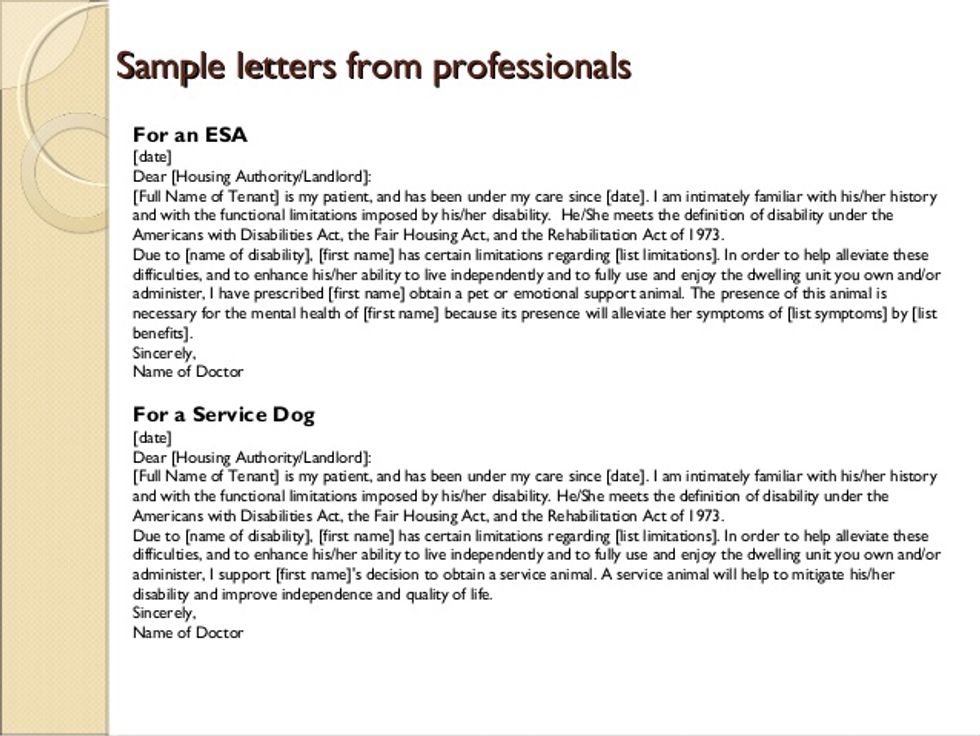Emotional Support Animals (ESA) have been a hot topic in the past couple of years. Stories of people getting fake letters so they can take their pets with them on planes or in pet free apartments have caused many to discredit those who truly need an ESA. If you believe that an ESA could be beneficial to the treatment of your mental illness, the following list provides the information you need to legally acquire your companion.
1. Don't buy your letter online.
Web sites such as CertaPet offer ESA letters at a cost. Although this seems like the easiest option, landlords will be more likely to question the legitimacy of your animal and may not approve your request for accommodation.
2. Know the law.
Know what you are legally entitled to under the Fair Housing Act. It is also important to know the difference between assistance animals and service animals. Your ESA will not have the same rights as a service animal.
3. Do some research.
Look up what type of animal may be right for you as well as the different shelters in your area. Being prepared before you consult with your therapist will make them more likely to support you in your decision.4. Consult with your therapist.
5. Get a letter from your mental health professional.
Once you've decided that an ESA would make a healthy addition to your treatment plan, ask your therapist to write you a letter so that you can take your companion with you on airplanes, or in some cases simply being able to have them in your home.
6. Write a personal statement.
In addition to a letter from your mental health professional, write a personal statement which states that you are asking for reasonable accommodation from your landlord under the FHA.7. Ask your landlord for reasonable accommodation.
Bring both your letter and personal statement to your landlord, and have a conversation with them about your situation. Hopefully, they will understand your needs and will comply.
8. Prepare for some resistance.
While legally, your landlord has to comply with your reasonable request for accommodation, they may be apprehensive. Be patient, and if they continue to resist, you can file a complaint with the Department of Housing and Urban Development or speak with a lawyer.9. Spend some time with different animals.
It's important to find the right animal for you. Go to a shelter and find an animal you really connect with.10. Bring home your ESA!
*Disclaimer* Your process may be more complicated if you live on campus, but legally, the same laws apply.





























